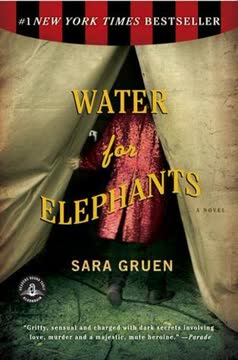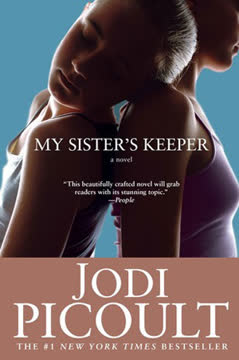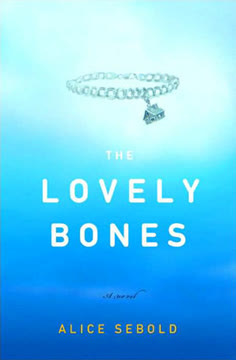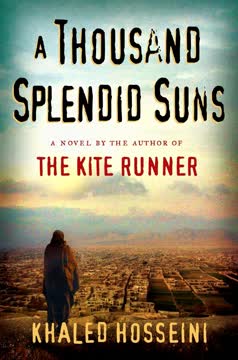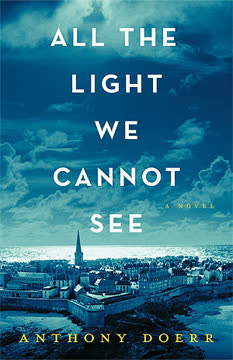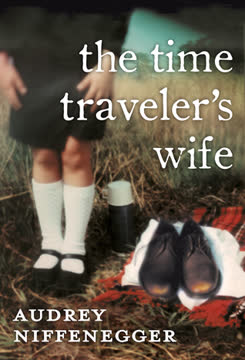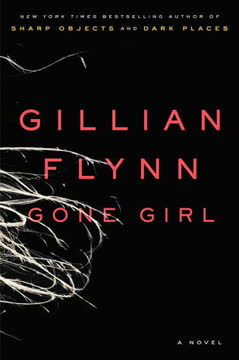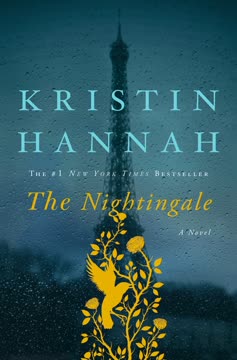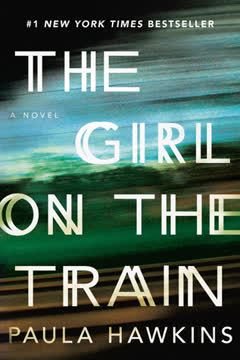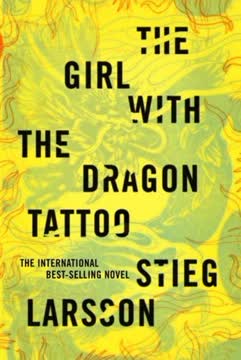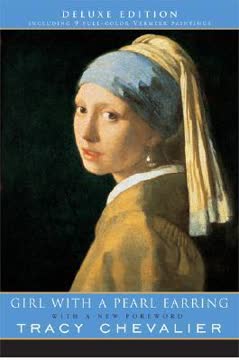Plot Summary
Shattered Beginnings, Shaky Tracks
Jacob Jankowski's life is upended when his parents die suddenly, leaving him orphaned and penniless during the Great Depression. Forced to abandon his veterinary studies at Cornell, Jacob wanders aimlessly until he impulsively jumps aboard a passing train. He soon discovers he's landed in the midst of the Benzini Brothers Most Spectacular Show on Earth, a struggling circus. The train is a microcosm of desperation, hope, and survival, filled with outcasts and dreamers. Jacob's grief and disorientation mirror the chaos of the circus, and as he's swept into its world, he's forced to confront the loss of his past and the uncertainty of his future. The circus becomes both his refuge and his crucible, setting the stage for a journey of transformation.
Circus of Lost Souls
Jacob is initiated into the harsh, insular world of the circus, where the lines between performers and workers are rigid and unforgiving. He befriends Camel, a kindly old roustabout, and Walter, a dwarf clown with a sharp tongue and a loyal dog, Queenie. The circus is ruled by Uncle Al, a ruthless manager, and August, the charismatic but volatile animal trainer. Jacob's veterinary skills earn him a place, but he quickly learns that survival depends on navigating shifting alliances, unspoken codes, and the ever-present threat of violence. The circus is a place of spectacle and squalor, where beauty and brutality coexist, and every soul is haunted by secrets and longing.
The Menagerie's Secret Language
The arrival of Rosie, an apparently "stupid" elephant, is hailed as the circus's salvation. August, desperate for a new act, grows increasingly frustrated with Rosie's refusal to obey commands. Jacob, drawn to the gentle giant, discovers that Rosie understands only Polish. This revelation transforms her from a liability into a star, and Jacob's ability to communicate with her cements his place in the circus. The bond between Jacob, Rosie, and Marlena—the beautiful equestrian star and August's wife—deepens, offering hope and connection amid the circus's chaos. Rosie becomes a symbol of resilience and the power of empathy, her trust in Jacob a rare gift in a world built on exploitation.
Love and Madness Unleashed
As Jacob and Marlena work together to train Rosie, their mutual attraction grows into a forbidden love. Marlena, trapped in a marriage to the mercurial and increasingly abusive August, finds solace and safety in Jacob's presence. August's charm gives way to paranoia and cruelty, his jealousy stoked by the growing intimacy between Jacob and Marlena. The circus's insular world magnifies every emotion, and the trio's entanglement becomes a powder keg. The threat of exposure, violence, and ruin hangs over them, as love and madness spiral toward an inevitable collision.
The Elephant's Bond
Rosie's transformation into the circus's star act brings temporary prosperity, but also intensifies the dangers surrounding Jacob and Marlena. August's alternating affection and brutality toward both Rosie and Marlena reveal the depths of his instability. Jacob's loyalty to Rosie and Marlena is tested as he's forced to make impossible choices to protect them. The circus's fragile community is held together by secrets and lies, and the cost of survival grows ever steeper. Rosie's gentle presence becomes both a sanctuary and a catalyst, her fate intertwined with Jacob and Marlena's dreams of escape.
Survival in the Shadows
As August's suspicions mount, Jacob and Marlena are forced into secrecy, meeting in stolen moments and plotting a future beyond the circus. Camel, now crippled by tainted liquor, is hidden in Jacob and Walter's cramped quarters, a reminder of the circus's indifference to suffering. The threat of being "redlighted"—thrown from the moving train—looms over anyone deemed expendable. Jacob's sense of responsibility for his friends and for Rosie weighs heavily, and the lines between right and wrong blur in the struggle to survive. The circus's relentless grind leaves little room for mercy, and every act of kindness is an act of defiance.
The Price of Loyalty
The cost of loyalty becomes painfully clear as Camel is redlighted and Walter disappears, victims of Uncle Al's ruthless calculus. Jacob is wracked with guilt and grief, haunted by the knowledge that his choices have consequences for those he loves. The circus's hierarchy is maintained through fear and violence, and even the most loyal are not spared. The bonds between Jacob, Marlena, and Rosie are tested to the breaking point, and the dream of escape seems ever more distant. Yet, in the face of loss, Jacob's resolve hardens, and his love for Marlena and Rosie becomes his guiding light.
August's Descent
August's mental state deteriorates, his abuse of Marlena and Rosie escalating to terrifying levels. Marlena, bruised and desperate, finally leaves him, seeking refuge with Jacob. Uncle Al, more concerned with the circus's survival than with justice, pressures Jacob to reconcile the couple for the good of the show. The circus's moral bankruptcy is laid bare, and Jacob is forced to confront the limits of his own power. August's obsession with control and his inability to accept loss drive him to the brink, setting the stage for a final, catastrophic reckoning.
The Disaster March
The circus's fragile order shatters during a performance when the "Disaster March" signals catastrophe: the animals have been set loose, and panic engulfs the big top. Amid the stampede, Jacob fights his way to Marlena and Rosie, desperate to save them from the chaos. The boundaries between spectacle and reality dissolve as violence and fear consume performers and audience alike. In the maelstrom, Rosie's loyalty and intelligence become a lifeline, and the choices made in these moments will determine who survives and who is lost.
Blood and Sawdust
In the heart of the stampede, August's rage turns deadly as he attacks Rosie and Marlena. In a moment of shocking clarity, Rosie defends herself and Marlena, killing August with a single, deliberate blow. The act is both vengeance and liberation, ending the cycle of abuse and freeing Jacob and Marlena from August's tyranny. The aftermath is a blur of blood, sawdust, and shattered illusions, as the circus collapses under the weight of its own corruption. The truth of what happened is kept secret, a silent pact between survivors.
Aftermath and Reckoning
The circus disbands in the wake of the disaster, its members scattered and its leaders vanished or dead. Jacob and Marlena, now fugitives in a sense, must reckon with the consequences of their actions and the trauma they've endured. Rosie's fate hangs in the balance, but Jacob's ingenuity and Marlena's determination secure her safety. The bonds forged in adversity prove unbreakable, and the survivors find solace in each other. The world outside the circus beckons, offering both hope and uncertainty.
Redemption and New Beginnings
Jacob and Marlena, united by love and shared ordeal, begin anew. With Rosie and their animals, they find a place in the world, first with Ringling and later in a quieter life. Jacob completes his veterinary degree, and together they build a family, cherishing the peace and joy denied them for so long. The scars of the past remain, but are softened by love, purpose, and the memory of those lost. Rosie lives out her days surrounded by kindness, a testament to the power of compassion and the possibility of redemption.
The Last Escape
In his nineties, Jacob reflects on his extraordinary life from the confines of a nursing home. Haunted by loss and the indignities of age, he finds solace in memory and the enduring love he shared with Marlena and Rosie. When a circus comes to town, Jacob seizes one final chance for freedom, escaping to the big top and reclaiming his identity as a man who once ran away with the circus. In the company of kindred spirits, he finds peace, belonging, and the affirmation that, even at the end, life can still hold wonder and meaning.
Characters
Jacob Jankowski
Jacob is the novel's protagonist, a sensitive, intelligent young man whose life is derailed by tragedy. Orphaned and adrift, he finds himself thrust into the brutal world of the circus, where his veterinary skills become both his salvation and his burden. Jacob is defined by his empathy—for animals, for the vulnerable, for those trapped by circumstance. His journey is one of loss, love, and moral reckoning, as he navigates the treacherous terrain of loyalty, desire, and survival. Jacob's relationship with Marlena and Rosie anchors him, offering hope and purpose amid chaos. In old age, Jacob is reflective and wry, his memories a lifeline against the indignities of decline. His arc is one of transformation—from lost boy to protector, from victim to agent of his own destiny.
Marlena
Marlena is the circus's star equestrian, a woman of grace, intelligence, and quiet strength. Married to August, she is both adored and imprisoned, her life a performance on and off the stage. Marlena's compassion for animals, especially Rosie, mirrors her own longing for kindness and safety. Her relationship with Jacob is a slow-burning rebellion against the constraints of her marriage and the circus's patriarchal order. Marlena is both vulnerable and resilient, her choices shaped by fear, hope, and the desire for autonomy. Her journey is one of self-discovery, as she claims her right to love, happiness, and a life beyond the circus's gilded cage.
August
August is the circus's animal trainer and Marlena's husband, a man of dazzling charm and terrifying volatility. His charisma masks deep insecurity and mental illness, manifesting in cycles of affection, cruelty, and paranoia. August's need for control extends to both animals and people, and his abuse of Marlena and Rosie is both personal and symbolic. He is both victim and perpetrator, shaped by the circus's brutal logic and his own fractured psyche. August's descent into madness is both tragic and monstrous, culminating in violence that destroys him and liberates those he sought to possess. His character is a study in the corrosive effects of power, jealousy, and untreated mental illness.
Rosie
Rosie is the circus's elephant, initially dismissed as stupid and useless. Her true intelligence is revealed when Jacob discovers she understands Polish, transforming her into the circus's star and a symbol of resilience. Rosie's bond with Jacob and Marlena is profound, rooted in trust, empathy, and shared suffering. She endures abuse with stoic dignity, her eventual act of self-defense both shocking and redemptive. Rosie embodies the novel's themes of compassion, loyalty, and the possibility of transformation. Her presence is a balm in a world of cruelty, and her fate is inextricably linked to the story's emotional core.
Uncle Al
Uncle Al is the circus's owner and manager, a man driven by ambition, greed, and a total lack of scruples. He rules through fear, pitting workers against each other and dispensing rewards and punishments with equal caprice. Uncle Al's obsession with spectacle and profit blinds him to the suffering of those in his charge. He is both a survivor and a predator, thriving in the circus's moral vacuum. His willingness to "redlight" (murder) those who threaten his bottom line makes him a figure of terror. Uncle Al's eventual downfall is both inevitable and just, a reckoning for a life built on exploitation.
Walter (Kinko)
Walter, known as Kinko, is a dwarf clown with a sharp wit and a chip on his shoulder. Initially hostile to Jacob, he becomes a loyal friend and ally, sharing cramped quarters and hard-won wisdom. Walter's relationship with his dog, Queenie, reveals his capacity for love and vulnerability. He is acutely aware of the circus's hierarchies and prejudices, his own marginalization fueling both cynicism and compassion. Walter's fate is a testament to the dangers faced by the powerless, and his friendship with Jacob is one of the novel's most poignant bonds.
Camel
Camel is an aging circus worker who befriends Jacob and helps him find his place in the circus. His body is ravaged by "jake leg," a paralysis caused by tainted liquor, rendering him helpless and dependent. Camel's decline is both a personal tragedy and a symbol of the circus's indifference to suffering. His presence in Jacob and Walter's lives forces them to confront the limits of loyalty and the costs of compassion. Camel's story is a reminder of the human toll exacted by poverty, addiction, and a society that discards the weak.
Grady
Grady is a seasoned roustabout who navigates the circus's dangers with a mix of caution and street smarts. He serves as a guide and occasional protector for Jacob, offering advice and warnings about the realities of circus life. Grady's loyalty is to his fellow workers, and he is quick to recognize both threats and opportunities. His presence grounds the story in the everyday struggles of the working class, and his perspective is a counterpoint to the drama of the performers and bosses.
Earl
Earl is one of the circus's security men, tasked with maintaining order and carrying out Uncle Al's dirty work. Despite his role, Earl is not without compassion, and he occasionally bends the rules to help those he deems worthy. His interactions with Jacob reveal the complexities of power and morality in the circus. Earl's choices reflect the tension between duty and decency, and his fate is tied to the shifting fortunes of the show.
Charlie O'Brien
Charlie O'Brien is the contemporary circus manager who encounters Jacob in his old age. He recognizes Jacob's history and offers him a place in the circus, honoring his past and granting him a final sense of belonging. Charlie's kindness and respect provide a counterpoint to the exploitation of the past, and his role in Jacob's last escape is a testament to the enduring power of community and memory.
Plot Devices
Dual Timelines and Memory
The novel employs a dual narrative structure, alternating between Jacob's experiences as a young man in the circus and his reflections as a nonagenarian in a nursing home. This device allows for a meditation on memory, aging, and the persistence of the past. The contrast between the vibrancy of youth and the indignities of old age heightens the story's emotional impact, while the gradual revelation of key events builds suspense and deepens character development. The interplay of timelines underscores the themes of loss, resilience, and the search for meaning.
The Circus as Microcosm
The circus functions as a self-contained universe, governed by its own rules, hierarchies, and moral codes. It is both a place of wonder and a crucible of cruelty, where beauty and brutality coexist. The circus's rigid divisions—between performers and workers, bosses and roustabouts—mirror broader social inequalities. The constant threat of violence, both human and animal, creates an atmosphere of tension and unpredictability. The circus's collapse serves as a metaphor for the fragility of order and the inevitability of change.
Foreshadowing and Symbolism
The novel is rich in foreshadowing, from the opening prologue's hint of violence to the recurring motif of the "Disaster March." Rosie's initial "stupidity" foreshadows her later revelation as the key to survival. The recurring imagery of trains, cages, and chains symbolizes both confinement and the possibility of escape. The animals, especially Rosie, serve as mirrors for the human characters, their fates intertwined and symbolic of broader themes of empathy, power, and liberation.
Moral Ambiguity and Survival
The characters are constantly forced to make difficult choices in a world where survival often comes at the expense of others. The line between right and wrong is blurred by necessity, and acts of kindness are both rare and risky. The novel explores the costs of loyalty, the limits of compassion, and the ways in which trauma shapes identity. The secrecy surrounding August's death and the fate of the redlighted men highlight the moral compromises required to endure in a hostile world.
Redemption and the Power of Story
The act of storytelling—both within the narrative and in Jacob's final escape—serves as a means of redemption and healing. By sharing his story, Jacob finds absolution for his secrets and a renewed sense of purpose. The novel suggests that meaning is found not in the absence of suffering, but in the bonds forged through adversity and the courage to claim one's own narrative. The circus, for all its darkness, is also a place of wonder, and the act of remembering becomes an act of resistance against oblivion.
Analysis
Water for Elephants is a meditation on memory, trauma, and the search for belonging in a world marked by loss and upheaval. Through the lens of the Depression-era circus, Sara Gruen explores the complexities of power, love, and survival, crafting a narrative that is both intimate and epic. The novel's dual timelines invite readers to consider the ways in which the past shapes the present, and the persistence of hope even in the face of decline. At its heart, the story is about the redemptive power of empathy—between humans, and between humans and animals. Rosie's journey from abused outcast to beloved companion mirrors Jacob and Marlena's own quest for dignity and connection. The circus, with its spectacle and squalor, becomes a metaphor for the human condition: a place of both cruelty and wonder, where the possibility of transformation is always present. Gruen's novel challenges readers to confront the costs of survival, the limits of forgiveness, and the enduring need for love and meaning. In the end, Water for Elephants affirms that even in the twilight of life, it is never too late to reclaim one's story, to find home, and to choose freedom.
Last updated:
Review Summary
Water for Elephants received mixed reviews, with many praising its vivid depiction of Depression-era circus life and compelling characters. Readers enjoyed the dual timeline narrative and the memorable elephant, Rosie. Some found the romance predictable and criticized the flat female lead. The book's historical details and exploration of aging were appreciated. While some readers found it captivating, others felt it didn't live up to expectations. Overall, it was generally considered an entertaining read with a few shortcomings.
Similar Books
Download PDF
Download EPUB
.epub digital book format is ideal for reading ebooks on phones, tablets, and e-readers.
